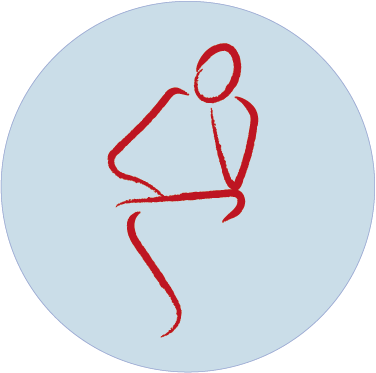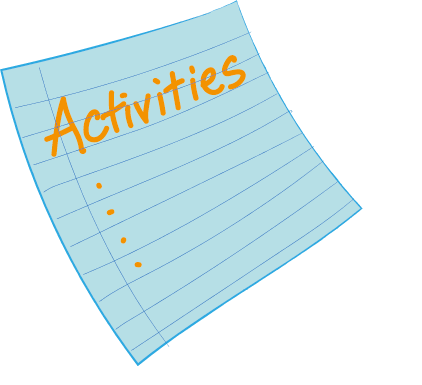God calls Elders
| Site: | URC Learning Hub |
| Course: | Exploring Eldership |
| Book: | God calls Elders |
| Printed by: | Guest user |
| Date: | Thursday, 3 April 2025, 3:30 PM |
Description
What is Eldership and who are Elders? This part of the course provides background and context for these questions and introduces the activities that an Elder may be involved in.
Table of contents
1. Introduction
In this module, you will:
- explore the role that God has in the calling of people to eldership
- explore the link between eldership and New Testament times
- be given the opportunity to explore the history of eldership
and, most importantly,
- reflect on whether God is calling you to this role.
2. First thoughts
Before you start:
 Take a little time to reflect on your understanding of the role of an Elder
Take a little time to reflect on your understanding of the role of an Elder
- what do Elders do? How does the role contribute to the life of your church?
- are you looking at this topic because you have been asked to consider eldership?
- are you here because you have been an Elder for some time?
- what role do you think God has had in the calling of Elders in your church?
3. The call
You may have been approached by others asking you to consider becoming an Elder, or you might have just felt a growing sense that this is something you needed to explore further, but it’s important to recognise that it is God who calls people to be Elders. Perhaps your first reaction was to think ‘Why me?’, but once we recognise God’s activity that completely changes our perspective.
Just as we read in the New Testament about Jesus calling the disciples to follow him, so that same call continues to this day. And, again like the disciples, Elders are called to exercise leadership within the church, not in our own strength, but only with the strength and wisdom given by the Holy Spirit.
Jesus calls his first disciples:
16 As Jesus walked beside the Sea of Galilee, he saw Simon and his brother Andrew casting a net into the lake, for they were fishermen. 17 “Come, follow me,” Jesus said, “and I will send you out to fish for people.” 18 At once they left their nets and followed him. 19 When he had gone a little farther, he saw James son of Zebedee and his brother John in a boat, preparing their nets. 20 Without delay he called them, and they left their father Zebedee in the boat with the hired men and followed him.
Of course, the role of Elders has inevitably changed throughout history, perhaps especially since the time of the Reformation, while today it is also likely to vary from one local church to another. For the moment, however, we simply want to acknowledge that while being called to be an Elder is an awesome challenge, it is also a tremendous privilege!
4. How do we hear the call?
Click this link for a transcript of the video
Click here to download this video as a file (opens in new window)
5. Confirmation of the call
You may be wondering how you can know that the call is really meant for you. Every call is different as we heard in the video testimony of those who have heard the call of eldership. Consider whether you are being called too. You may like to talk to your Elder about their call and what you think God may be calling you to do.
What happens next?
Whilst the detail of the process of calling elders varies from one church to another those who have heard the call to eldership will be asked to allow their names to go forward to a Church Meeting where members vote for those they wish to serve as elders in their congregation.
Hearing and accepting the call can be challenging as is recalled by these Elders:
![]()
Click this link for a transcript of the video
Click here to download this video as a file (opens in new window)5.1. The election of Elders

This paper from Ministries Committee about the safer election of Elders was accepted by Assembly Executive in November 2020 and includes a number of details about the process of recruitment.
6. What is ordination?
The history of ordination goes back to Old Testament times and is seen as an outward sign of God’s call and a symbol of the special role that elders play in the life of the church. Elders are ordained into the United Reformed Church and Inducted into service into the life of their specific congregation. The ordination and induction recognises that the individual does nothing in their own right but only as appointed by the church and operating under the guidance of the Holy Spirit.
![]() You can find out more about the history of ordination on the final page of this section and from the slideshow that follows the end of this module.
You can find out more about the history of ordination on the final page of this section and from the slideshow that follows the end of this module.
7. Ordination - where does it come from?
The Old Testament
Depending on which translation of the Bible you refer to you may find the first references to ordination as far back in the Old Testament in Chronicles, Numbers and Habakkuk. Here the reference is to a variety of ways and subjects for what we might call ‘setting aside’. In Exodus and Leviticus we find the details of the rituals to be followed for the ordination of the priests including the following:
1 Now this is what you shall do to them to consecrate them, so that they may serve me as priests. Take one young bull and two rams without blemish, Verse 1 (link opens in a new window)
22You shall also take the fat of the ram, the fat tail, the fat that covers the entrails, the appendage of the liver, the two kidneys with the fat that is on them, and the right thigh (for it is a ram of ordination) Verse 2 (link opens in a new window)
On the surface there may seem to be little in common with our own experience or expectation of ordination. These were Jewish rituals but at the centre was their understanding of setting aside in the presence of God those for whom there was a special calling to specific tasks, tasks which had been ordained by God.
The New Testament
If we look a little closer to our own day there are examples in the early church, of this ‘setting aside’ in ways that are reflected in our own tradition and actions.
1 Timothy 4:14 Do not neglect the gift that is in you, which was given to you through prophecy with the laying on of hands by the council of elders.
8. History and tradition of ordination
 The history of ordination – in some
senses continuous from Paul’s day - is as old as the church itself. It has been
the cause of division and controversy as, over the centuries, churches looked
to ensure the validity of succession and the source of authority. The rite of
ordination has been the means by which the church has provided itself with
leaders authorised to teach, to nurture the faith, and to administer church
discipline.
The history of ordination – in some
senses continuous from Paul’s day - is as old as the church itself. It has been
the cause of division and controversy as, over the centuries, churches looked
to ensure the validity of succession and the source of authority. The rite of
ordination has been the means by which the church has provided itself with
leaders authorised to teach, to nurture the faith, and to administer church
discipline.
At the time of the Reformation Calvin suggested that there needed to be three different offices in the leading of the church, ministers of Word and Sacrament, government, and caring for the poor. He saw the area of government to be the responsibility of elders, elected by their congregations and working together with ministers of Word and Sacrament in a conciliar manner. Calvin rejected the previous threefold order of Bishop, priest, and deacon which had been the norm from the 3rd century until the Reformation of the 16th century. It is Calvin’s understanding which provided the basis for the understanding of ministry and church order adopted by all three constituent denominations which made up the United Reformed Church.
Looking back to Moses we find (Numbers 11:10-25) God’s instruction to Moses to gather 70 elders to assist him in his work. God came down and spoke to these men and ‘put some of the spirit that was on him (Moses) and put it on the 70 elders’. Looking at the passages from the epistles and, again, we find reference to leaders being set apart with prayer, fasting, and the laying on of hands imparting the Spirit enabling the work of leadership to be carried out in accordance with God’s will.
9. Ordination today
So, whilst the practice of ordination over the years has altered and adapted there is a common theme – ordination is an outward sign of God’s call and a symbol of the special role that elders play in the life of the church. Together with Induction, it recognises that the individual does nothing in their own right but only as appointed by the church and operating under the guidance of the Holy Spirit.
10. Service of ordination and induction
Following election at a Church Meeting arrangements will be made to hold a service of Ordination and Induction. The service will usually include the sacrament of Holy Communion and will be presided over by the minister or Interim Moderator. Practices vary between churches and there may be non-serving Elders returning to service or Elders from other congregations who have moved to a new congregation, either of whom will, together with any newly ordained Elders, be inducted to service in their specific church. Ordination is a once-only event and Elders are Ordained into the United Reformed Church.
You can find a link to a downloadable version of the ordination and induction of Elders here
11. Review
 Remember those notes that you made at the beginning of this module? Now would be a good time to review them and ask yourself:
Remember those notes that you made at the beginning of this module? Now would be a good time to review them and ask yourself:
- what have I found out in this module that I didn't know before?
- what else do I need, or want, to know?
then have a look at the next page.
12. Taking things further
Activities
 1. Speak with other elders about their call and how it has been affirmed over the years.
1. Speak with other elders about their call and how it has been affirmed over the years.3. Ask others what skills and gifts they perceive in you. Are these gifts ones they feel are needed within the church?
4. Challenge your own perception of who should be an elder.
5. Consider sharing with a minister of word and sacraments to gain something of their perceptions about eldership.

Liturgy
12.1. General resources
Andrew Roberts – Holy Habits Resource – BRF
London Institute of Contemporary Christianity (LICC) website
Shoreline Conversations - Packs - Breathing Spiritual Conversations